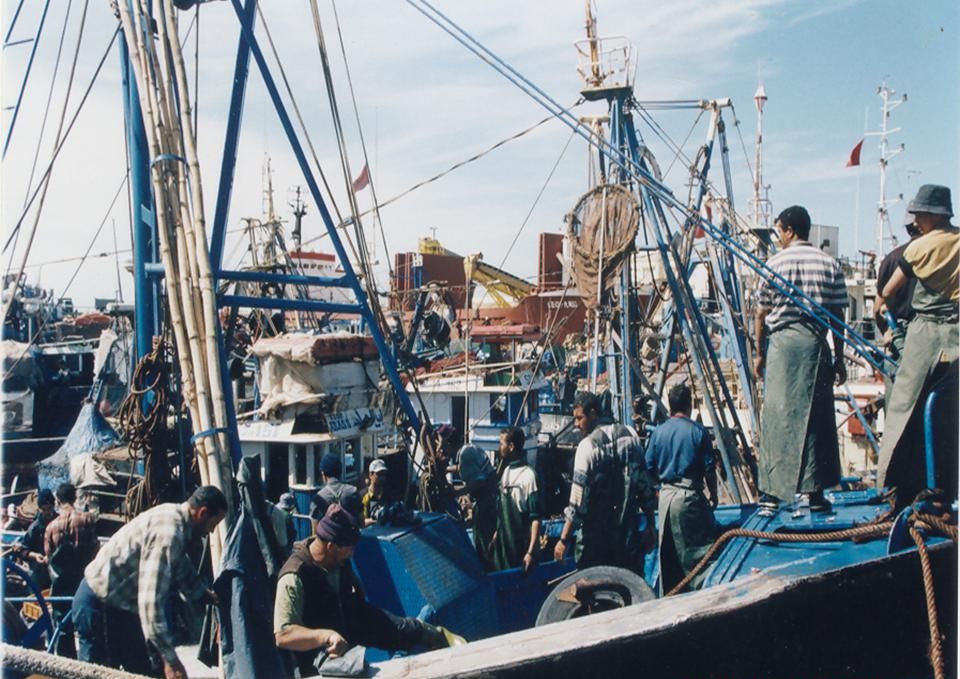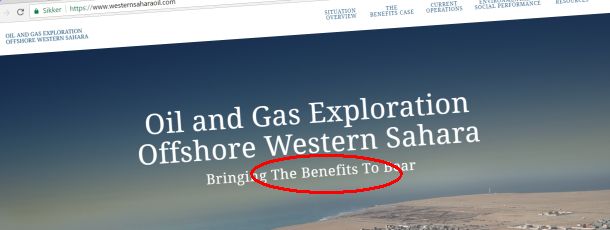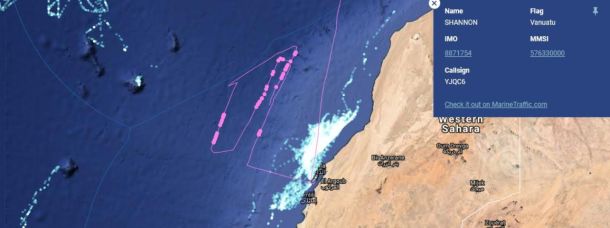
In 2005, USTDA stated that it "has not and would not support any activities in Western Sahara”. On 4 June 2009, Western Sahara Resource Watch and the US based Defense Forum Foundation sent a letter to the agency asking how this policy will be followed, considering the grants which are now being given to infrastructure projects for Morocccan fisheries. WSRW points to the fact that most of the Moroccan fisheries is taking place in Western Sahara.
United States Trade and Development Agency
Att: Mr. Carl B. Cress,
Director, Middle East and North Africa Region
1000 Wilson Blvd., Suite 1600
Arlington, VA 22209
USA
CC:
Chargé d’Affaires, Mr. Robert P. Jackson
Embassy of the United States of America
2 Avenue de Mohamed El Fassi
Rabat
Morocco
Melbourne/Washington, 4 June 2009
Regarding USTDA policy and practice on Western Sahara
Dear Sirs,
Western Sahara Resource Watch, an organisation spanning 30 countries, working in solidarity with the Sahrawi people, and Defense Forum Foundation/US-Western Sahara Foundation, have noticed with interest the USTDA media release published 5 May 2009, regarding grants for cold chain infrastructure for the Moroccan fisheries sector. Based on the good USTDA policy on Western Sahara, we have a question as to how the grants will be implemented.
As correctly pointed out in the media release, products from the fisheries sector account for a large part of Morocco’s national exports. As USTDA is probably well aware, most of this industry is taking place in Western Sahara, which Morocco annexed and occupied in 1975. A large part of the industry is thus tangled up in a series of political, ethical and legal dilemmas.
The US Government does not recognise Moroccan claims to Western Sahara, as clearly was expressed when the previous US Trade Representative Mr. Zoellick in 2004 specifically pointed out that the US-Moroccan Free Trade Agreement only applies to Morocco as it is internationally recognised, and not Western Sahara.
Also the USTDA has been clear that it does not wish to support projects in Western Sahara.
In correspondence in October 2005 between a country manager of USTDA and a member of staff of the US House of Representatives, the USTDA official confirmed that “USTDA has not and would not support any activities in Western Sahara”.
This position was expressed when USTDA had announced its support for a GIS project for the Moroccan oil company formally known as ONHYM. Both in the media and in external correspondence USTDA then stated clearly that it would to follow the policy of the US Government supporting the UN peace process, and “because of this” would not support activities in Western Sahara.
The following was stated by a USTDA country manager on 26 October 2005 to a House staff member:
“ONHYM uses an internationally recognized map of Morocco that excludes Western Sahara.
ONHYM does NOT consider Western Sahara part of Morocco's territory. Additionally, the GIS modeling system is based on the internationally recognized map of Morocco which excludes Western Sahara. Therefore, this equipment cannot be used in Western Sahara because it is not recognized in the modeling equipment and is not included within the boundaries that will be examined with this GIS equipment. The Government of Morocco has never requested funds from USTDA to conduct activities in Western Sahara. We would not support any activities in Western Sahara. USTDA is guided by US foreign policy as it is developed by the Department of State in delivering our program. According to the Desk Officer for Morocco the US Government is working for a solution to Western Sahara through the UN context. All parties involved need to work through the UN to find a mutually agreed upon solution. Because of this, USTDA has not and would not support any activities in Western Sahara“.
As you perhaps also know, this USTDA policy on Western Sahara was confirmed to the news service www.oilbarrel.com on 19 December 2005. “USTDA does not provide support to any projects that will take place in or affect [the territory known as Western Sahara]”, a senior USTDA representative stated. It was also said that “the maps used for the project stop at the internationally-recognised borders of Morocco, this being something the Moroccans agreed to when the project was first negotiated four years ago.”
Most of the fisheries industry taking place in Western Sahara today is carried out to the south of this internationally recognised border, and almost all of the people employed are Moroccans who have settled in Western Sahara since Morocco illegally annexed the territory in 1975. Representatives of the Sahrawi people have declared on many occasions that the fisheries industry is taking place in disregard of the wishes and interests of their people.
The Sahrawi people’s right to self-determination, as established by more than 100 UN resolutions, includes, inter alia, the right of permanent sovereignty over its natural resources. Permanent sovereignty over natural resources is a customary principle of international law.
For an analysis on the legality of this industry, we would like to refer you to a statement from Mr. Hans Corell, former UN Legal Counsel and UN Under-Secretary-General for Legal Affairs, presented at the University of Pretoria, 5 December 2008:
http://www.havc.se/res/SelectedMaterial/20081205pretoriawesternsahara1.pdf, and to his letter to the UN Security Council on 29 January 2002: http://www.havc.se/res/SelectedMaterial/20020129legalopinionwesternsahara.pdf
In addition to its legal implications, supporting infrastructure projects in Western Sahara has clear political and ethical ramifications, as has been pointed out by several governments, and undermines the UN peace process.
WSRW has not seen any notice from USTDA that its policy has been changed on the Western Sahara conflict, and expects it to be following the good policy which was stated in 2005.
On this basis Western Sahara Resource Watch wishes to ask the USTDA the following question:
What measures is USTDA taking to make sure that the cold chain infrastructure projects that it will support are located in Morocco as it is internationally recognised, and not in Western Sahara?
We look forward to your reply,
Yours sincerely,
(sign.)
Cate Lewis
International Secretary
Western Sahara Resource Watch
www.wsrw.org
(sign.)
Suzanne Scholte
President, Defense Forum Foundation
And chairwoman of US-Western Sahara Foundation
www.defenseforum.org
WSRW repeats question to USTDA
WSRW and Defense Forum Foundation repeats question to the USTDA as to what is being done to prevent US funds from being used by the Moroccan government in Western Sahara.
Oil Companies Hover Over Western Sahara But Who Calls The Shots
Story published by Oilbarrel.com, 14 December 2005.
Kosmos Energy maintains propaganda site after Western Sahara exit
Kosmos Energy has decided to keep their website defending Western Sahara oil search - even after they have left the territory.
Studies continue on Kosmos Energy's block
Is Kosmos Energy undertaking a last survey on the Boujdour Maritime licence before it waves goodbye to occupied Western Sahara? Or has an unknown company taken over the licence? Last week, seabed petroleum surveys started at the place where Kosmos drilled in 2014.

